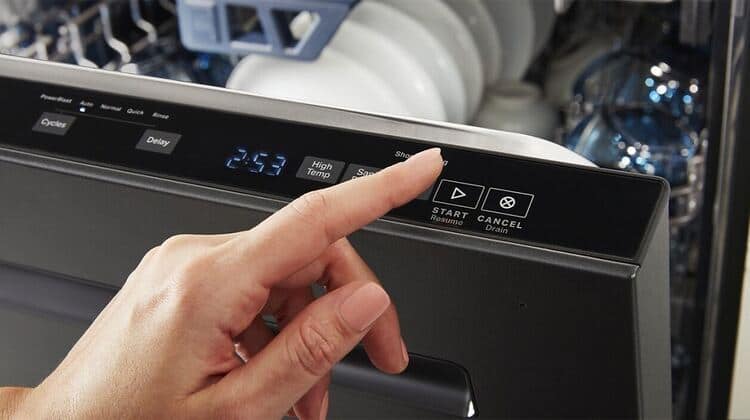Don’t Do This When Using A Dishwasher
A dishwasher is a kitchen marvel, streamlining the dishwashing process and saving valuable time. However, to ensure its efficient operation, certain practices should be avoided. In this comprehensive guide, we’ll explore the dos and don’ts of using a dishwasher, helping you maintain its performance and prolong its lifespan.
Avoid Loading the Wrong Items
While dishwashers are versatile, not all items are suitable for machine washing. Certain items, such as sharp knives, wooden utensils, and delicate crystal, should be washed by hand to prevent damage. Sharp knives can become dull over time due to the dishwasher’s forceful water jets and pose a safety hazard during unloading. Wooden items are prone to warping and cracking when exposed to water and heat, jeopardizing their integrity. Similarly, delicate crystal can be damaged or clouded by the dishwasher’s intense heat and water pressure.

Steer Clear of Overloading the Unit
Overloading the dishwasher may seem like a time-saving strategy, but it hinders proper cleaning. When overloaded, dishes obstruct the water flow, leading to ineffective cleaning and the accumulation of food debris. Dishwasher racks are designed with specific spaces to allow water to reach all surfaces effectively. Therefore, it’s essential to adhere to the recommended loading capacity and avoid overcrowding the unit.
Load Items Properly
Proper loading is crucial for optimal cleaning results. Arrange dishes strategically, ensuring adequate spacing and orientation to facilitate water circulation. For instance, load plates and bowls on the bottom rack with their soiled surfaces facing the water jets. Place utensils and smaller items in the designated compartments, ensuring they’re not nested together to prevent incomplete cleaning. Delicate items like glasses and mugs should be positioned on the top rack to avoid damage from the dishwasher’s heat.

Skip the Pre-Rinse
Contrary to conventional wisdom, pre-rinsing dishes before loading them into the dishwasher is unnecessary and wasteful. Modern dishwashers are equipped to handle small food particles and residue efficiently, eliminating the need for pre-rinsing. Excessively rinsing dishes wastes water and energy, increasing operating costs and environmental impact. However, large food particles should be scraped off dishes to prevent clogging and ensure optimal dishwasher performance.
In conclusion, by avoiding these common pitfalls and adhering to best practices, you can maximize the efficiency and longevity of your dishwasher. Embrace proper loading techniques, refrain from overloading the unit, and trust in its ability to tackle food residue effectively. With these tips, you can enjoy sparkling clean dishes without compromising performance or sustainability.



